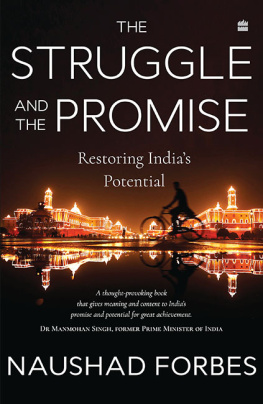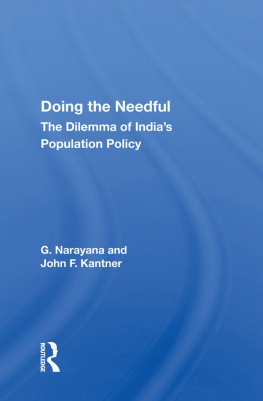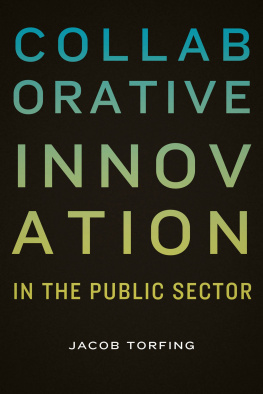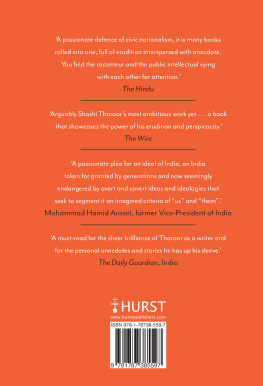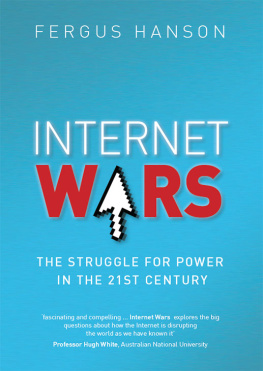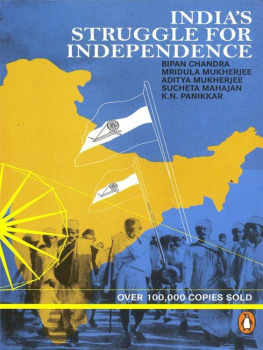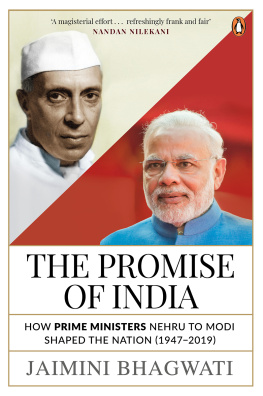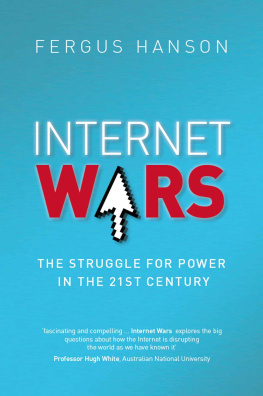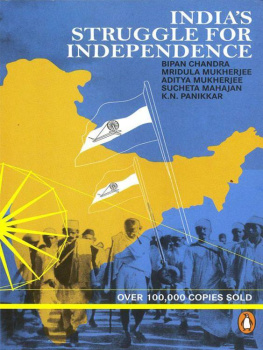Table of Contents


For my family, Darius, Maharookh, Farhad and Rati, and especially Riah, Darius and Aaron, who are only promise
Contents
India lives in all centuries at once.
Manmohan Singh
Do you know Sir Roderick Glossop?
Only to the extent of having sat next to him at a public dinner not long ago.
A talented man, I believe.
So he told me. He spoke very highly of himself.
Uncle Fred in the Springtime, P.G. Wodehouse
What is Indias future?
I deeply believe in Indias promise, in our potential for great achievement. I am also old enough to appreciate our ability to snatch failure from the jaws of success. We long followed policiesparticularly in the 1970sthat kept India poor. From 1991 onwards, reforms opened India to the world, reduced controls and unleashed entrepreneurship. The dominance of one political party waned. As politics fragmented, space was created for institutions to become more independent and strengthen. From 1991 to 2017, every year saw India in better shape than the previous one. There were bumps along the way, but there was consistent improvement. The return to a politics with one dominant party was accompanied by increased bureaucratic control, protectionism and more state intrusiveness. Stronger political control also affected the independence of institutions.
As I write this prologue, Covid-19 prompts particularly sharp doubt about Indias future. The second wave of infection was so sweeping, and its impact so graphic, that it deeply affected both the reality and perception of life in India. This was a once-in-a-century event; it was epochal. Domestic and international press coverage was damning, the worst in my memory, but it merely sensationalised the grim reality. This recent experience led to a mix of emotionssadness at loss of life, anger at incompetent leadership and the gusto with which people embraced unsafe practices, frustration at how unnecessary all this was. What is the future of a country which struggled to provide enough oxygen to keep the severely ill alive? Which disregarded Covid-19 protocols in organising massive election rallies and religious gatherings in the same month that saw dramatic increases in infection? Where the government seemed more concerned about managing the optics than the dismal reality?
How do we square this experience with Indias long-term future?
I continue to believe in Indias great potential, but we will struggle to fulfil it. Clearly much must change to deliver on our promise.
A diverse culture, a young and aspirational population, and a varied and entrepreneurial private sector are the foundation of our promise. Equally, Indias future does not and cannot rest on a suddenly wise and competent state: low state capacity is so obviously in evidence in our miserable public health response to the Covid-19 pandemic. This means the role of the government will be essential but limited, and must be focused on only a few things, public health among them. When the government does less, citizens and firms must do more. How can this, done right, become a strategy for leadership? How can we fix things by learning from best practice elsewhere? How can we ensure openness, inclusivity and innovation? What is the right balance of industry, institutions and policy? How can our culture deliver leadership?
This book is my answer to these questions. As we will see, by being open to the world; by investing in innovation, education and research; by building independent institutions step by step that set the rules under which we all operate; by policies that unleash the enterprise that fixes the problems; and by constantly acting in consonance with our culture.
By doing all this, we can deliver leadership.
But why leadership? This book is about Indias promise. To achieve it, we must set our sights high, high enough for India to provide leadership far beyond our borders. If we aspire to lead the world, as I think we can and must, that means we must be judged by a higher standard than anyone else. We cannot accept excusesof our past, of poor leadership, of democracy, of complexity, of size. There is much we must change as we struggle to lead. And to change, we must first learn.
I have thought about these issues all my life. I bring to these pages a hybrid backgroundas an industrialist, an academic interested in innovation policy, a past president of the Confederation of Indian Industry, and someone who enjoys participating in public debate in our newspapers. These pages also reflect my special (warped is the word my friends use) sense of humour. I do not like to take anything too seriously, myself included. I include several cartoons by the great R.K. Laxman, who so perfectly captured the essence of the India we lived in in the 1970sand, in many respects, still live in.
I have been fortunate to be inspired by conversations, courses and books from some great teachers. You will find many of them in these pagesthe historians David Landes, Gordon Wright and Ramachandra Guha, the sociologists Alex Inkeles and Ronald Dore, the engineers Jim Adams, Malcolm McWhorter and Stephen Kline, the political scientists Devesh Kapur and Pratap Bhanu Mehta, and the university leaders Gerhard Casper and Pankaj Chandra. Many economists have framed my world view: Abhijit Banerjee, Albert Hirschman, Anne Krueger, Arvind Panagariya, Arvind Subramanian, Ashok Desai, Dave Wield, Gary Becker, Harry Rowen, Keith Pavitt, Ken Arrow, Moe Abramovitz, Nate Rosenberg, T.N. Ninan, Raghuram G. Rajan, Rakesh Mohan, Richard Nelson and T.N. Srinivasan.
My experience with the Confederation of Indian Industry is also something I constantly draw on. I have many wonderful friends in the secretariat and membership; my many references to Tarun Das and Chandrajit Banerjee stand for them all. Many industrialists have set paths of ethical, innovative and public-spirited business that are models for the rest of us. They are represented by Darius, Farhad and Rati Forbes; Jamshyd, Adi and Nadir Godrej; Kiran Mazumdar-Shaw; Kris Gopalakrishnan and Nandan Nilekani; Meher Pudumjee; Rahul, Rajiv and Sanjiv Bajaj; and Ratan Tata.
This book has benefited greatly from the expert assistance of Madhurjya Deka at the Centre for Technology Innovation and Economic Research in Pune, and Tanya Gill and Chhaya Gogate at Forbes Marshall. The comments from many on drafts of this book are greatly appreciatedRamachandra Guha, Riah Forbes, Dave Wield, Abhay Puri and Ashok Desai in particular provided a mix of broader and detailed comments that greatly sharpened and improved what I was trying to say. They will recognise some of their words in revised sentences. My friends Bharat Puri, Denzil de Souza, Mehul Vaidya, Raj Dugar, Salman Noorani, Satyadeo Purohit and Virendra Gill provided constant encouragement, as did Sachin Sharma, my publisher at HarperCollins. All books reflect the preferences of their authors; in this book, I wear my values on my sleeve. My familyDarius, Maharookh, Farhad, Rati, Riah, Darius J. and Aaronhave been and are the source of my values. They are my moral compass. This book is the result.
Pune, 4 December 2021
Naushad Forbes
Charlie Brown: There are a lot of smart people in the world.
Snoopy: Yes, but most of them are asymptomatic.
T he worlds largest event devoted to family business is the annual Family Business Summit. The 2019 summit took place in Udaipur, hosted jointly by Family Business Network International (FBN) and the Confederation of Indian Industry (CII). All feedback says it was the best one yet, combining wonderful sessions full of content with the outstanding organisation of CII and the spectacular backdrop of Udaipur. This is not merely an advertisement for Udaipur, FBN and CII. Great opportunity lies in Indias soft power, but we need hard action to realise it.

